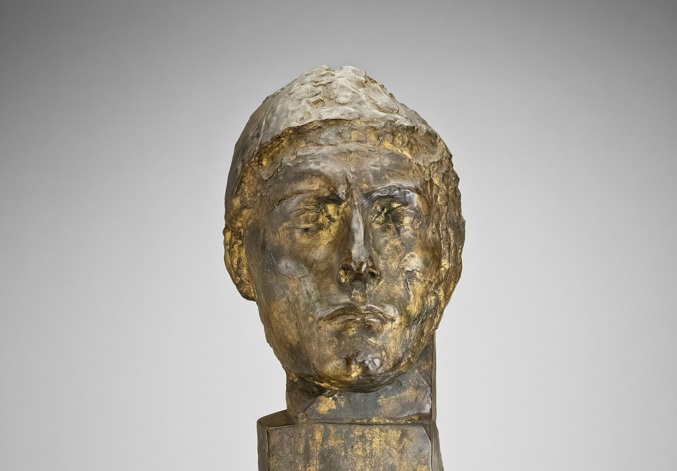 Art Institute of Chicago, Unsplash
Art Institute of Chicago, Unsplash During the Covid pandemic, the University of North Carolina (like many institutions of higher learning) went test-optional. However, the Board of Governors rightly reversed that policy this year, re-establishing a requirement that some students applying to UNC submit a score from a standardized college-entry exam and recognizing the SAT and ACT for that purpose.
So far, so good (though UNC should really re-expand its testing requirement to all students). The experiment of going testing-optional has proven to many universities the benefits of using admissions exams as part of a holistic admissions process. But the SAT and ACT are no longer the only players in the market, and compelling students to use only those exams whose content is determined by the Common Core standard, which does not reflect the curricula of all North Carolina students equally, is neither necessary nor equitable.
The Classic Learning Test merits recognition from the UNC Board of Governors as a third option. The Classic Learning Test (CLT)—which has exploded in usage in recent years thanks to its innovative test interface, commitment to serving students in adverse circumstances, and statewide implementation in Florida—merits recognition from the UNC Board of Governors as a third option. Its design and content are particularly well-suited to the needs of hundreds and thousands of North Carolina students being educated privately, at home, and in charter and parochial schools. These students, and all students who want to take the CLT (and its preparatory exam, the CLT10), deserve the support of the state legislature in doing so, via formal inclusion of the CLT in North Carolina’s state testing requirements.
I launched CLT in 2015 after previously working as both a public-school teacher and the head of an SAT test-prep company. Inspired by classic educational models, especially as exemplified by the American founding fathers and the luminaries of the civil-rights movement, I hoped to create an exam that would be anchored in the liberal-arts tradition. The test we’ve created rises above academic fads, relying on skills of critical thinking, attention, and communication that remain applicable regardless of curriculum trends, and introduces students to the literary and philosophical riches of the centuries.
The CLT, like other standardized tests, assesses examinees’ skills in reading comprehension, writing, and mathematics. But it also goes further, testing students’ abilities in grammar and logical reasoning, which comparable exams have largely given up on. This is, of course, an easy claim to make. In April of 2023, however, CLT backed it up, releasing a concordance report conducted by expert psychometricians that not only confirmed that CLT measures the same skills as the SAT and assigns precise, consistent scores but found a correlation between the CLT and SAT of 0.89. That is marginally higher than the correlation between the SAT and ACT in their math and English sections (0.885 and 0.884, respectively), as found in their own most recent concordance report, which goes back to 2018 (before major revisions to both exams).
CLT’s quality and versatility have helped it gain national, and even international, recognition in the short time since its foundation. Across the U.S., over 260 universities accept the CLT as an entry exam; furthermore, thanks to its expanded testing suite, which now extends from third to 12th grades, the company will administer a quarter of a million tests in 2024.
The CLT caters to a wider variety of learning styles and encourages a deeper commitment to reading. Recognizing the CLT will benefit the UNC System and North Carolina students immensely. In addition to matching the curricula of a broader profile of the state’s students—bear in mind, our state’s religious, classical, private, and homeschooling sectors are seeing student populations increase at a rate of three percent per year—the CLT caters to a wider variety of learning styles and encourages a deeper commitment to reading. It maintains substantial reading passages for verbal reasoning and analysis, in contrast to other tests that, as of late, may reduce reading passages to the length of a social-media post.
Additionally, two portions of North Carolina state law allow for high-school students to take college-entrance exams for free. Section 115C-174.11 calls for the State Board of Education to adopt a nationally norm-referenced college-entry exam that all high-school juniors can take, and Section 115C-174.18 specifies that students schooled both at home and publicly can, once they complete Algebra 1, take the PSAT or Pre-ACT for free. Legislators should add the CLT10 and the CLT to this roster of tests. Such a decision would allow freedom of choice to parents, students, and educators, not only in terms of what products to use but also in terms of what test best matches their curriculum and academic interests.
The CLT fosters a more literate, numerate, and critical education. It is suited to the needs of a diverse and diversifying student body throughout the state. In sum, the CLT is good for students, it’s good for schools, and it’s good for North Carolina.
Jeremy Tate is the founder of CLT, the Classic Learning Test.
